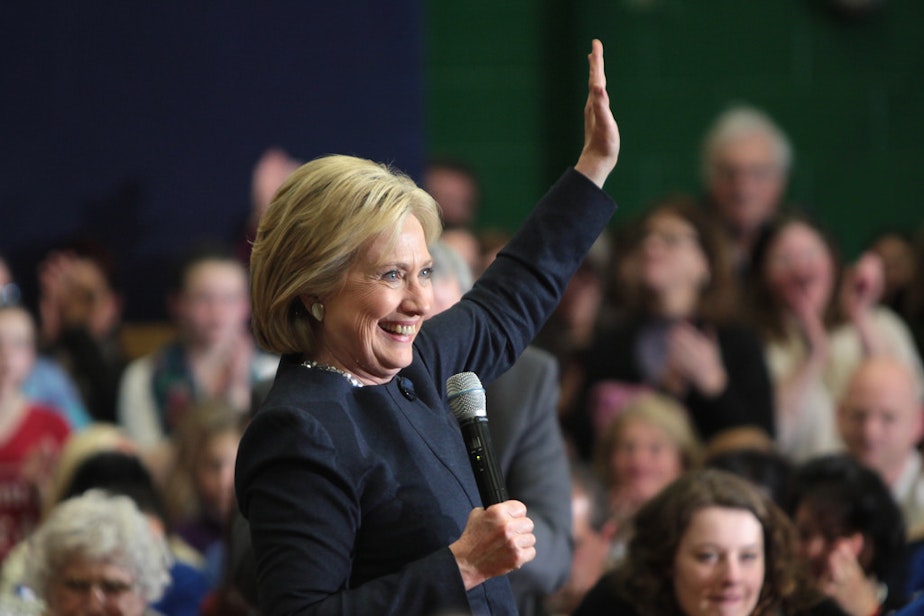Why so few women have run for president of the United States

Twelve women have run for president – ever.
That’s partly because women didn’t get the right to vote until 1919. But Margaret O’Mara, professor of history at the University of Washington, said that’s also because we view the presidency as a hyper masculine office.
“This is something that swirls around the debate about why there are so few women CEOs – things that are valued in leadership are often very male qualities,” O’Mara said.
“Lyndon Johnson – these kinds of politicians who are very, very good and very, very difficult to combat in the political arena, where femininity is equated with weakness.”
As we approach Election Day – just three months away – we should prepare for more discussion of gender, she said.
Sponsored
A different Republican candidate might not have prompted this introspection, but Donald Trump, known for his unapologetically sexist remarks, has made it part of the debate.
“The Clinton camp is clearly seeing an opening for women who would otherwise vote Republican who are going to vote on the basis of gender,” O’Mara said. “They're going to vote against Trump because of that.”
In 2008, O’Mara noted, Clinton ran a less feminized campaign than she did this time.
“To disabuse people of that idea that somehow, if a woman was in charge, she would be softer, that she wouldn’t be a strong commander-in-chief,” she said.
Female politicians are shoehorned into these traditional ideas of what it means to be a woman in the political sphere. The Republican mothers of the 1820s, for example, or the mama grizzlies of the Sarah Palin era.
Sponsored
It’s tough also on women who aren’t moms, O’Mara said: “When women are in the political arena and aren't mothers, or being kind of maternal in their focus, then they become open to all sorts of criticism.”
O’Mara said having a female president is an overdue landmark for the U.S. As the mother of two daughters, she feels that personally too.
But she said the public, on balance, believes the election of Barack Obama in 2008 was more groundbreaking than this year’s nomination of a female candidate.
“Particularly in this year when we're talking so much about the continuing problem of race and racism in American society, that the color of one's skin seems like more of an impediment to full equality and citizenship than one's gender,” she said.
For young women, too, Clinton is a familiar face – they view her as politics-as-usual, rather than a feminist change agent.
Sponsored
“But if Hillary Clinton wins in November, then we will have four years in which a White House and an Oval Office that has been very much defined by masculine qualities will have to accommodate having a woman behind that desk.”

